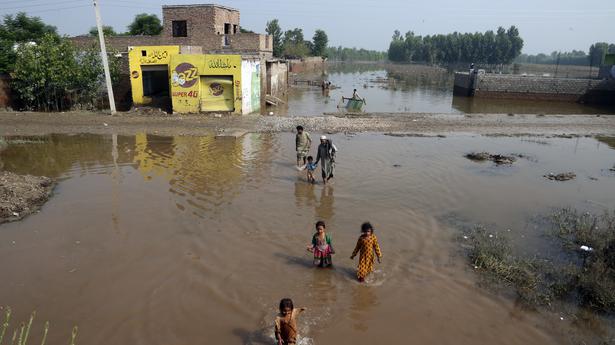
In Pakistan, fears of waterborne diseases as floods recede
The Hindu
Pakistan PM Shahbaz Sharif in a visit to the flood-hit Swat Valley promised the rehabilitation of every person displaced by the flood
Officials in Pakistan raised concern on August 31 over the spread of waterborne diseases among thousands of flood victims as waters from powerful monsoon rains began to recede in many parts of the country.
Some doctors said initially they were seeing mostly patients traumatised by the flooding, but are now treating people suffering from diarrhoea, skin infections and other waterborne ailments in the country's flood-hit areas.
The development has forced the government to deploy additional medical teams, dispatch medicine and provide clean drinking water to survivors, many of whom are living in tents and makeshift homes.
The warning came a day after record-breaking floods prompted the United Nations to formally issue an appeal for $160 million in emergency funding to the impoverished Islamic nation, where about a million homes have been damaged or destroyed.
Also Read | Floods and foes: On Pakistan floods and Indian response
Dr. Azra Fazal Pechuho, health minister in the country's worst-affected province of Sindh, said officials have set up 4,210 medical camps in the province's flood-hit areas to treat victims now suffering from skin and waterborne diseases, which are common during floods.
The World Health Organization began aiding Pakistani authorities in their efforts to treat people injured in the rains and flooding. The agency said in a statement it was working to increase surveillance for acute diarrhoea, cholera and other communicable diseases to avoid their spreading further, and is also providing medicine and medical supplies to health facilities.











